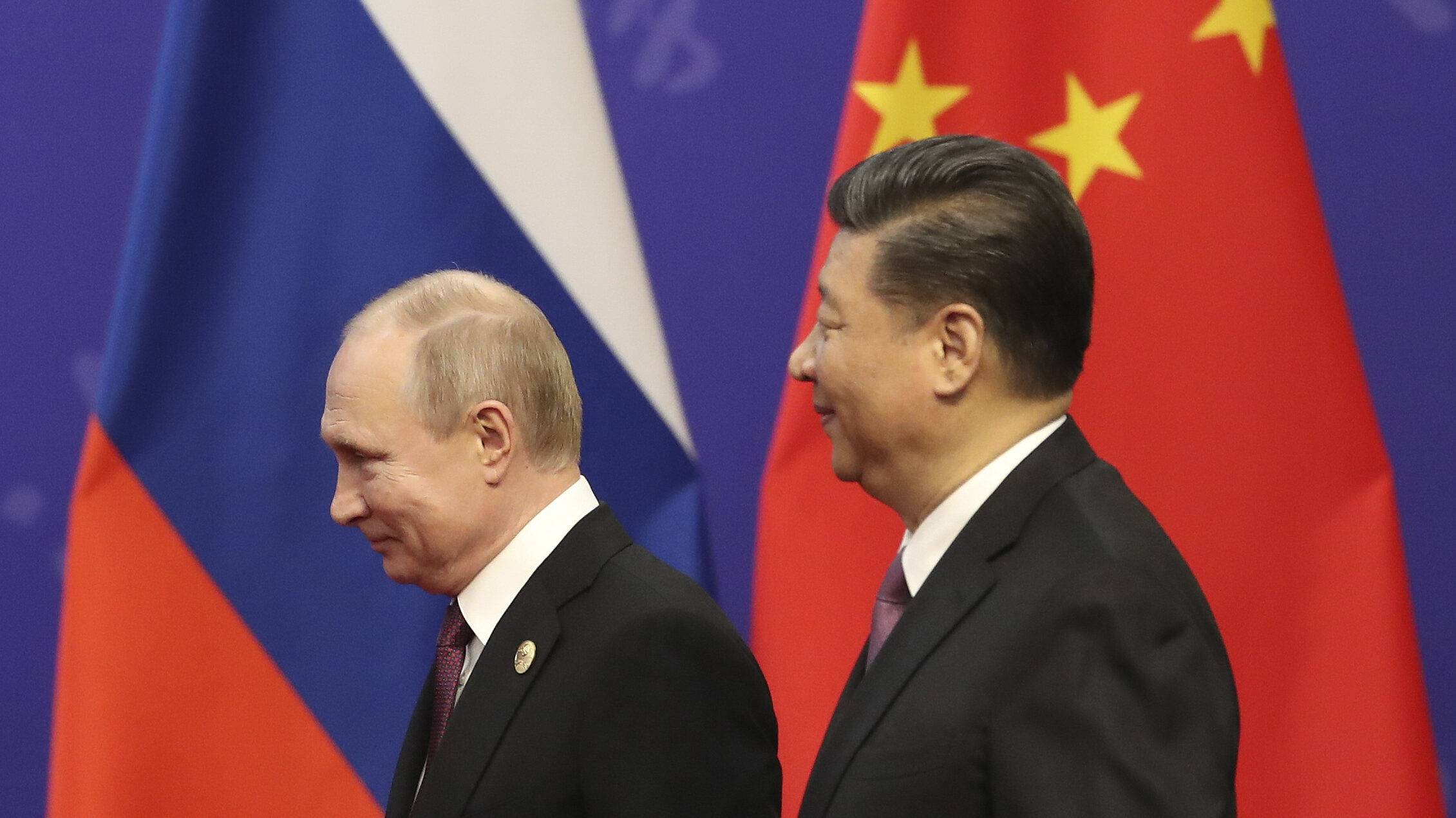

The evolving Sino-Russian relationship is shaped by a blend of strategic cooperation and cautious diplomacy. Historic tensions and modern geopolitical challenges, such as the Ukraine conflict and Taiwan issue, compel both nations to navigate a complex landscape of mutual economic reliance and guarded foreign policies.
MAY 14, 2024

Relations between Russia and China have historically always been complex and double-edged: the two Eurasian giants shared wars and peace, conflict and cooperation, deceit and friendliness. It is probably due to several factors, among these their respective international status, their geographical proximity and extended borders, their cultural differences and their definitely diverse approaches of foreign policy, which have historically resulted in a usual Russian easier use of force in the name of territorial integrity vis-a-vis a Chinese prudent and pragmatic approach when dealing with powerful rivals. Both countries share similar political regimes, with current Russia more personal authoritarianism of Vladimir Putin, while on the other hand a Chinese single communist party rule under the leadership of Xi Jinping.
While during Stalinist times there had been an initial mutual understanding and cooperation in the name of socialist war against Western capitalism, the two countries entered into a downward spiral during Khrushchev’s administration, resulting in a general stalemate in military, economic and technological cooperation which resulted in mutual distrust and even in a little skirmish alongside the Ussuri River in 1969. In the 1970s Beijing made strategic use of triangular diplomacy to gain support and establish relations with the United States to balance its militarily more powerful soviet neighbor.
This mutual antagonism lasted until the end of the cold war, with both countries entering a new critical phase in their history: Chinese student protests in Tiananmen Square in 1989, the fall of the Berlin Wall in the same year and the final dissolution of the USSR in December 1991 created internal crisis within the two geopolitical giants, which found themselves in a really difficult situation after the breakout of Western liberal values and the promotion of democracy worldwide in the 1990s. These existential threats made Moscow and Beijing evaluate a possible new strategic partnership and collaboration to protect their national identities, values, territorial integrity, and national interests. It was with this atmosphere that the Treaty of Good-Neighborliness and Friendly Cooperation between the People’s Republic of China and the Russian Federation was signed on July 16, 2001 by Chinese President Jiang Zemin and Russian President Vladimir Putin.
This treaty represents the main horizon of cooperative relationship between the two neighbors, in which is clearly stated that both countries recognize each other territorial integrity including Russian recognition of Taiwan as part of People’s Republic of China. This treaty established military, economic, energy cooperation and peaceful relations between Beijing and Moscow and it has been agreed to be extended by Putin and Xi Jinping in summer 2021 due to its 20 years expiry date. In other words, this treaty is extended for another 5 years starting from February 2022, therefore until February 2027.
Aside from the legal basis of the bilateral relation, the two countries find themselves again in a difficult geopolitical situation: the battle in Ukraine, the Taiwan issue and the geopolitical and economic rivalry with the West are increasing the tensions with the US and the EU and therefore contribute to a tighter strategic partnership between Beijing a Moscow. China is an economic giant, with many analysts suggesting Chinese GDP will surpass the American one by 2030, making Beijing the greatest and strongest economy worldwide.
At the same time, these last two years of war in Ukraine have put the Asian superpower in a difficult situation: with the national growth already jeopardized by the Covid crisis, the threat of the US and EU companies to impose sanctions on Chinese companies selling their weapons and technology to Russia urges Beijing to maintain a low profile in this conflict and aiming for a peaceful resolution. Furthermore, Russian invasion of Ukraine has extensively weakened the Chinese Belt and Road Initiative (BRI), with Ukraine being one important partner for China in its economic projection within the heart of Europe.

Also, Russian war effort is also bringing benefits to Beijing: the war has blocked the majority of Russian companies exports within the EU and is slowly transferring them in China. Furthermore, Russia finds itself in a position in which it needs to radically change its energy clients: recent talks between Chinese and Russian authorities stressed the importance of fastening the buildup of natural gas and oil pipelines across Siberia under the famous project of Power of Siberia 2.
For the moment, after initial difficulties of the Russian economy, Moscow is improving its GDP position by increasing its oil and gas exports to BRICS countries, Africa and Latin America due to a high but fixed devaluation of the ruble and a general increase in military production, which is currently outclassing the entire EU military industrial capacity. Nevertheless, the overall increasing dependency of Russia on China’s economic support is softly helping China in compensating Western companies bans on Chinese imports, thus contributing to an overall structural endurance of the Chinese industries.
The good personal relationship between Putin and Xi Jinping, united by a feeling of shared personal life experiences during the cold war times represent a decisive positive factor in the relationship between the two countries, even though the rising voices in the West for a possible intervention of NATO troops in Ukraine is leading China to a more prudent approach towards Taiwan, resulting in a decreased political narrative on the national issue and a general pro-peace attitude regarding Ukraine.
The empowered Putin leadership after the decisive victory in Russian elections in March suggests that Moscow has the capacity of conducting a prolonged conflict in Ukraine, which in the long run may be risky for Chinese investments in the European side of the BRI and Beijing’s bilateral partnerships with Eastern European countries in the project “Cooperation between China and Central and Eastern European Countries” pursued by the Chinese Ministry of Foreign Affairs.
At the same time, several meetings between Russian and Chinese officials in the last months have showed the willingness to maintain a constant and slow integration of both economies in bilateral contracts and enhanced cooperation within the Shanghai Cooperation Organization (SCO) framework, tightening together Moscow’s and Beijing’s economic, security and anti-terrorism cooperation with central Asian countries.
Overall, the Sino-Russian relationship is steadily working on increasing the economic integration of the two countries, with Russia relying on its greater partner for energy exports and indirect technological and military support. On the other hand, Chinese current interests are merely economic: Beijing maintains a low-profile attitude towards Russian invasion of Ukraine, supporting Russian cause only rhetorically and economically but not clearly from a military standpoint.
This is due to Beijing’s willingness to maintain economic relationship with the US and the EU for the development of high-tech industries in China, which still require American and European micro-chip technologies. Chinese recent prudent approach towards Taiwan, motherland of micro-chip manufacture, may also be caused by the delicate geopolitical situation in which the Dragon finds itself at the current moment. Despite Russian recent military progress in Ukraine, the situation is still uncertain: the US congress has recently voted for a new package for Ukraine, thus contributing to a prolonged war in the European continent. Russia prepares for a new offensive phase in the conflict. China softly stands for a peaceful resolution while at the same time waiting for a turning of the tide.
A curated seletion of FA’s must-read stories.
Written By: SeungHawn Kim
Written By: RIZWAN RAFI TOGOO
Written By: MARCO MENDEZ
Written By: KRISHNA ACHNAF HERINDRA
Written By: BILLY AGWANDA
Written By: SURUTHI LENIN
Written By: BERK TUTTUP
Written By: ALEXANDER BERGH

Riccardo Nachtigal is a Master Student in East Asian Studies at University of Groningen, Netherlands. His main fields of studies are Chinese Foreign Policy, Sino-Russian relations, EU-China relations and the Asia-Pacific region.
Written By: BATUHAN GUNES
Written By: KRISTIN HYNES
Written By: ERIC SONG
Written By: ALEXANDER BERGH
Written By: KATE-REID SMITH
Written By: JOSEF SCHOEFL
Written By: PATRIC MCFARLAND
Written By: FATIH CEYLAN
FA’s flagship evening newsletter guilding you through the most important world streis ofthe day. Delivered weekdays.